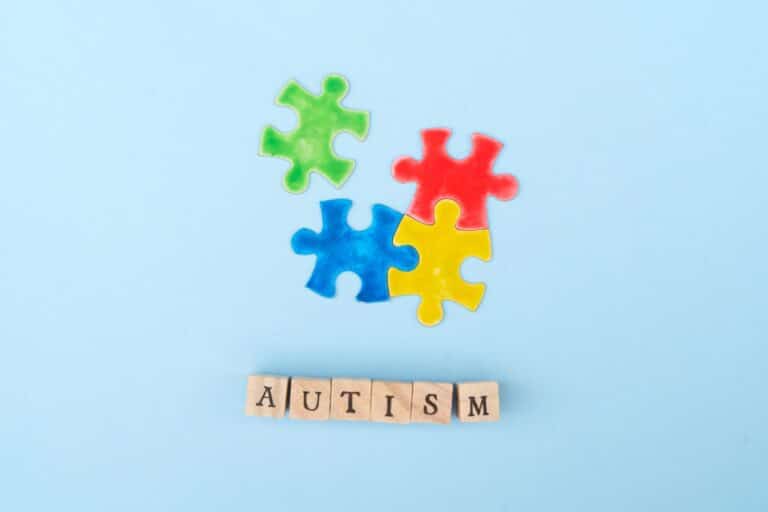Popular belief is that Adderall misuse is most severe among adolescents. But recent research shows that the largest population of recreational Adderall users are 18 to 25 years old.
Prescription amphetamines have become ubiquitous across college campuses. Students use them as study aids and performance enhancers for test-taking.
Quitting amphetamines can be very challenging, especially after long periods of misuse. People who depend on the medication can suffer the effects of Adderall withdrawal.
Are you or someone you know trying to quit? It may be helpful to understand the Adderall withdrawal symptoms timeline.
This article will discuss the withdrawal symptoms of Adderall in detail. We’ll also go over several tips for managing the discomfort of withdrawal.
Adderall Use & Misuse
Adderall is an amphetamine and a schedule II controlled substance. Doctors started to prescribe it to children with ADHD in the mid-1990s.
In 1990, 600,000 children were using prescribed stimulants. That became 3.5 million children by 2013. Today there remain many young adults struggling to kick the habit.
Prescribed for neurobehavioral conditions, patients use Adderall either daily or as needed. Many people also get Adderall through illicit means. Some use it in unhealthy quantities.
Over time, people develop a level of tolerance for the effects of Adderall. They become dependent on it. Dependence can lead to addiction and harmful side effects such as drug overdose and death.
What Are the Symptoms of Adderall Withdrawal?
Fortunately, Adderall withdrawal does not cause many dangerous medical problems. Adderall mainly affects the brain. So, the primary symptom of Adderall withdrawal is a depressed mood.
The real risk is that a depressed mood can develop into suicidal thoughts and behaviors.
Everybody’s withdrawal experience is different. The severity of your symptoms will depend on several factors. These factors include:
- The length of time you’ve used Adderall
- How frequently you use Adderall
- The size of Adderall dosage you take
- Any preexisting mental health conditions you may have
- Whether you use Adderall in combination with alcohol or other drugs
If you are addicted to Adderall or have a stimulant abuse disorder, you may have other withdrawal symptoms. It is always recommended to slowly taper off your stimulant usage rather than stopping cold turkey.
Everyone experiences different Adderall withdrawal symptoms. It is important to know what to expect. Adderall withdrawal symptoms affect both the body and the mind.
Physical Symptoms
Some of the physical symptoms of Adderall withdrawal are excessive tiredness and a complete lack of energy. Completing normal tasks like making breakfast, showering, and going to work or school can feel impossible.
You may also experience sleep difficulties. This can be either sleeping way too much or way too little. Either way, difficulty sleeping can leave you feeling fatigued and lethargic.
Many people experience a loss of appetite while on stimulants. It is also common to lose your appetite during Adderall withdrawal. Other people experience overeating while going through withdrawal.
Those going through Adderall withdrawal may also experience unusual aches, pains, and a reduced heart rate.
Psychological Symptoms
The psychological symptoms of Adderall withdrawal are related to mood imbalance and depression. You may experience feelings of emptiness, hopelessness, and worthlessness. Self-criticism tends to intensify as well.
You may notice increased symptoms of anxiety and depression if you have a history of either. Or you might experience these disorders for the first time.
Many people notice severe mood changes, such as extreme irritability, extreme frustration. Others experience feelings of guilt and regret. You may also lose interest in the things that used to bring you joy.
In the worst cases, feelings of depression transform into thoughts of death, suicide, and suicide attempts.
Post-Acute Withdrawal Symptoms
If you’ve been misusing Adderall for a long period of time, you may suffer from post-acute withdrawal symptoms. These symptoms can be more serious and pronounced. They also tend to last longer.
The symptoms of post-acute withdrawal include:
- Difficulty thinking, focusing, or making plans
- Uncontrollable delays in psychomotor function such as slowed movements and reflexes
- Feeling as if you are moving, talking, and thinking more slowly than usual
- Vivid and unpleasant dreams
- Headaches
- Adderall cravings
If you are experiencing post-acute withdrawal symptoms, you should consult a doctor or medical detox program. They can help make sure you are not at risk for any lasting health issues.
What Happens to the Brain During Adderall Withdrawal?
When your brain goes through Adderall withdrawal, it reacts to low levels of dopamine and norepinephrine. Dopamine and norepinephrine are neurotransmitters.
Dopamine activates the brain’s reward system. Norepinephrine boosts cognitive functions like alertness and focus.
Both dopamine and norepinephrine play roles in regulating your mood. During long-term amphetamine use, the brain gets accustomed to the increased activity of these neurotransmitters.
So when you stop using Adderall, the experience of withdrawal makes your brain thinks it has low levels of dopamine and norepinephrine when really the levels have just returned to normal.
How Long Is the Adderall Withdrawal Symptoms Timeline?
The symptoms of Adderall withdrawal typically begin within a few hours of the last dose taken. In a typical amphetamine user, the symptoms will continue for about two days. Most people experience exhaustion and a low mood.
If you take Adderall on a regular, daily schedule, your symptoms might appear more slowly. Those who binge on Adderall experience the symptoms of withdrawal more immediately.
It is important to know that the depression you experience during Adderall withdrawal is temporary. It usually lasts for about a week after you take your last dose.
Depression and mood imbalance can last for weeks and even months during post-acute withdrawal.
Such intense depressive episodes can also have long-lasting effects. They can bring up repressed trauma, feelings, and memories. After the withdrawal, you may have to face unexpected psychological and emotional issues.
Most withdrawal symptoms come on within a day or two and last for about a week. Some people experience the symptoms of withdrawal for up to a month or two.
Treatment for Adderall Withdrawal
There are no medications recommended for treating Adderall withdrawal. But, there are a few things you can do to make the symptoms of withdrawal more tolerable.
Anti-anxiety medications can help with feelings of irritation and aggression. Over-the-counter pain relievers help treat head and body aches.
For difficulty sleeping, try using melatonin. You can also ask your doctor for a prescription sleep aid. Taking antidepressants in advance can help ward off any lingering post-withdrawal depression.
There are also holistic treatments that can improve the symptoms of addiction withdrawal.
Rehabilitation for Adderall Addiction
The Adderall withdrawal symptoms timeline can last anywhere from a few days to a few months. How your body reacts to Adderall withdrawal depends on your relationship to the drug.
Are you suffering from amphetamine addiction and want to quit? Consider seeking help from a rehabilitation facility like Southern California Sunrise Recovery Center. These treatment centers offer both proven addiction treatment techniques and holistic methods. Contact Southern California Sunrise Recovery Center and take your life back today.






